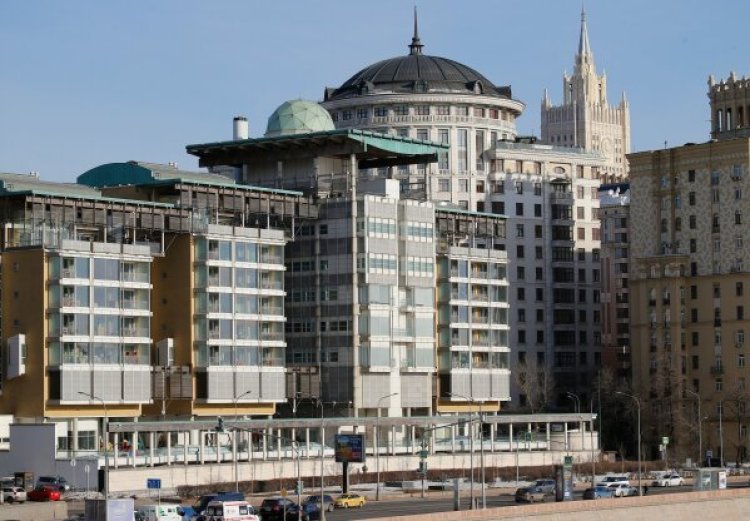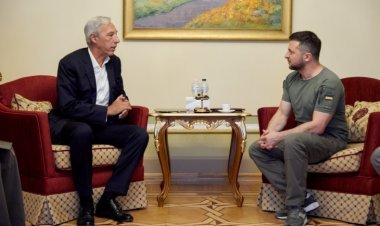Tensions Escalate as Ireland Denies New Visas to Russian Diplomatic Staff._ISHEJA

Escalating Tensions Between Ireland and Russia
The relationship between Ireland and Russia has been recently marred by escalating tensions and concerns over espionage activities. The Irish government's refusal to issue new visas for Russian diplomats and the significant reduction in Russian diplomatic staff in Dublin have raised alarm bells. These developments come amidst a backdrop of suspicion that the Russian embassy in Dublin has been employing its diplomatic presence as a cover for spy operations.
Irish Government's Refusal of New Visas
The Irish government has taken a firm stance by refusing to allow Moscow to replace its diplomatic staff in Dublin. This decision has been motivated by heightened concerns over espionage activities. The considerable size of the Russian diplomatic presence in Ireland has long been a worry for Irish security services. Even before Russia's invasion of Ukraine, the Russian embassy in Dublin maintained one of the largest diplomatic missions despite limited diplomatic ties with the Irish government and a relatively small diaspora in the country.
Reduction in Russian Diplomatic Staff
The number of accredited diplomats and administrative staff at the Russian embassy in Dublin has significantly decreased in the aftermath of Russia's invasion of Ukraine. Prior to the invasion, there were 30 accredited diplomats and administrative staff, but this number has now dwindled to 14. The decrease in staff includes the expulsion of four diplomats in March 2022 following claims that their activities were not in accordance with the international standards of diplomatic behavior.
Additionally, two defense attachés from Russia, who typically collaborate closely with or directly report to Russian intelligence agencies, have also departed from Ireland.
Espionage Concerns and Expulsions
The reduction in diplomatic staff and the government's refusal to issue new visas can be attributed to the Irish security services' longstanding concerns about espionage. The sprawling embassy complex in Dublin has been suspected of being involved in various spy activities, including the interception of communications. The Irish government's expulsion of diplomats and denial of new visas reflects its determination to address these concerns.
Despite this, a spokesperson for the Russian embassy criticized Dublin's visa and accreditation policy as unacceptable, highlighting the difficulties faced by embassy employees.
Impact on Irish-Russian Relations
The strain in Irish-Russian relations is evident in the decreased number of accredited Russian diplomats in Dublin and the halt in the issuance of new visas. These developments have had significant implications on the overall diplomatic relationship between the two countries.
Strained Diplomatic Relations
The strained diplomatic relations between Ireland and Russia have been a result of various factors. The invasion of Ukraine by Russia triggered international condemnation and led to a deterioration in relations with many countries, including Ireland. The Irish government's refusal to issue new visas can be seen as a response to Russia's actions in Ukraine, reflecting a broader stance against Russian aggression.
Irish Foreign Affairs' Stance
The Irish Ministry of Foreign Affairs has acknowledged the reduction in the number of Russian embassy staff in Dublin.
However, it has refrained from commenting on the visa-related matters. Diplomatic sources indicate that the Ministry of Foreign Affairs halted the issuance of new visas since last year due to the strained relations between the two countries. By taking this stance, Ireland is signaling its concern over Russia's actions and its commitment to upholding international norms.
Decrease in Accredited Russian Diplomats
The decrease in the number of accredited Russian diplomats in Ireland is a significant indicator of the deterioration of bilateral relations. Currently, there are six Russian diplomats and eight administrative staff stationed in Dublin, including Ambassador Yuriy Filatov. The expulsion of four diplomats in March 2022, on the grounds of their activities not being in accordance with diplomatic behavior standards, further highlights the concern of the Irish government regarding espionage.
Expert Analysis and International Implications
Experts have analyzed the situation and highlighted the increased scrutiny faced by Russian embassies and the shifting nature of Russian intelligence operations. These developments have implications not only for Ireland but also for countries worldwide.
Increased Scrutiny of Russian Embassies
Since the start of the war in Ukraine, Russian embassies around the world have come under closer scrutiny from local security services. This increased scrutiny has forced Russian intelligence agencies to rely less on traditional espionage activities carried out under diplomatic cover. The suspicion surrounding the Russian embassy in Dublin is indicative of this broader trend.
Shifting Intelligence Operations
Experts suggest that Russian intelligence operations have shifted to other means of operating due to the intensified surveillance on embassies. This includes the utilization of a diffuse network of Russian nationals, not directly associated with embassies, for intelligence gathering. Moscow has also been increasingly recruiting nationals from other countries to engage in espionage activities. The recent arrests of five Bulgarian nationals accused of spying for Russia in the UK serve as an example of this trend.
In conclusion, the escalating tensions between Ireland and Russia have significantly impacted their diplomatic relations. The Irish government's refusal to issue new visas to Russian diplomats and the reduction in diplomatic staff reflect concerns over espionage activities. This strained relationship has implications for both countries and highlights the changing nature of Russian intelligence operations worldwide. The increased scrutiny of Russian embassies and the utilization of foreign nationals in espionage operations demonstrate the evolving dynamics of international intelligence networks.












